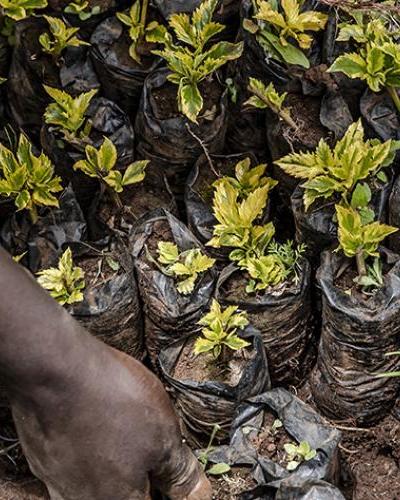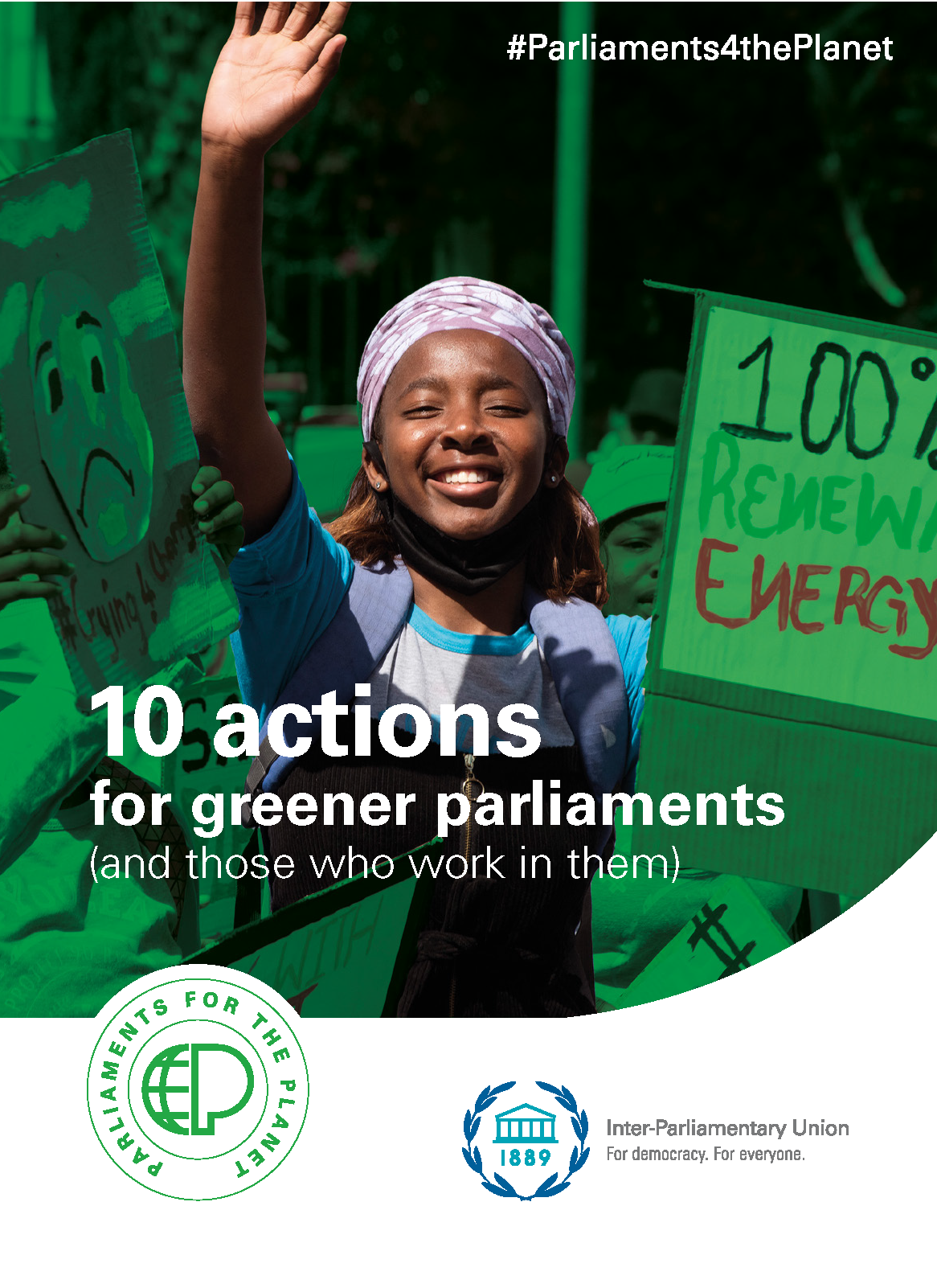International Day of Parliamentarism - 30 June

Parliaments for the Planet
Climate action begins at home. Parliaments and those who work in them can take concrete steps to reduce their carbon footprint, both as institutions and individuals. By adopting greener policies and embracing a culture of sustainability, parliaments and parliamentarians can help address the climate crisis and pave the way for stronger climate action.
Climate change is killing people and destroying lives, development, peace and security all over the world. The IPU helps parliaments make progress on the Paris Agreement as well as other climate treaties, accelerate decarbonization and reduce the carbon footprint within parliaments themselves through its research, tools and meetings. As a first step, they can decarbonize their place of work by putting in place the IPU’s 10 actions for greener parliaments (and those who work in them).
Background
The International Day of Parliamentarism is celebrated every year on 30 June, the date in 1889 on which the IPU was founded. The Day was established in 2018 through a United Nations General Assembly Resolution.
Instituting an international day for parliaments is particularly important at this critical time for parliamentary democracy, when people are losing trust in political institutions and democracy itself is facing challenges from populist and nationalist movements. If democracy is to thrive, then parliaments, as the cornerstone of functioning democracies, need to be strong, transparent, accountable and representative.
The International Day of Parliamentarism is a time to review the progress that parliaments have made in achieving some key goals to be more representative and move with the times, including carrying out self-assessments, working to include more women and young MPs, and adapting to new technologies.
The United Nations General Assembly, in its resolution A/RES/72/278, recognized the role of parliaments in national plans and strategies and in ensuring greater transparency and accountability at national and global levels.
Parliaments and parliamentary organizations played an active role throughout the negotiations on the post-2015 development framework, advocating strongly, for instance, for the inclusion of SDGs related to democratic governance. Goal 13 of the Sustainable Development Goals is dedicated to taking urgent action to combat climate change and its impacts.
Did you know?
- Every country in the world has some form of representative government.
- Parliamentary systems fall into two categories: bicameral (with two chambers of parliament) and unicameral (with one chamber).
- IPU membership is made up of 179 national parliaments.
- Out of 190 countries, 78 are bicameral and 112 are unicameral, making a total of 268 chambers of parliament with over 44,000 members of parliament.
- 26.2% of the world's members of parliament are women.
- Half the world’s population is under 30 and yet only 2.6% of MPs globally represent this age group
Campaign
My parliament, my planet !
Parliaments for the Planet is designed to mobilize parliaments and parliamentarians to act on the climate emergency. Learn how your parliament can lead by example.

10 actions for greener parliaments
Parliaments and parliamentarians must lead by example before preaching to the people. These actions cover three categories: institutionalizing the greening of parliament, greening the way parliaments and their members work, and leading and fostering a culture of sustainable change. Climate action begins at home.
This part of the article has been published in the United Nations' site in this link: https://www.un.org/en/observances/parliamentarism-day.





